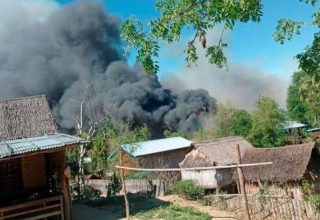There has been a “staggering” rise in natural disasters over the past 20 years and the climate crisis is to blame, the United Nations said Monday.
Researchers pointed to a failure of political and business leaders to take meaningful action to mitigate the impact of climatic change and stop the planet from turning into “an uninhabitable hell for millions of people.”
Meanwhile, the coronavirus pandemic, which has killed more than 1 million people and infected at least 37 million, has exposed the failure of “almost all nations” to prevent a “wave of death and illness” despite repeated warnings from experts, the report said.






















